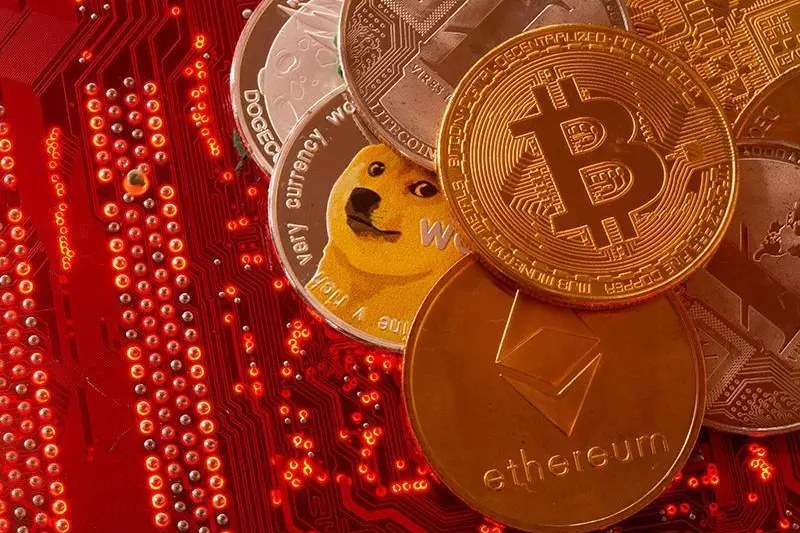PHOTO
(Our regular analysis of the wild world of cryptocurrencies)
XRP has become the unlikely white knight of crypto, thwarting its regulatory foes and dragging the market out of the doldrums.
The price of XRP popped 78% after a U.S. judge ruled on July 13 that issuer Ripple Labs' sales of the token on public exchanges didn't violate securities law, and it's still up about 47%. Its market cap has ballooned to $36 billion from $25 billion and its crypto market share to 3.5% from 2% before the ruling, according to CoinMarketCap.
Ripple's landmark victory has galvanized the wider market for altcoins - cryptocurrencies excluding bitcoin - as much of the regulatory scrutiny on the sector focuses on whether some tokens should be classed as more tightly-regulated securities.
"It's a big milestone for the altcoins sector, it is fair to assume that if XRP is not a security, barely any other digital asset can be considered that way," said Matteo Greco, analyst at fintech and blockchain investment firm Fineqia International.
Indeed, the altcoin market cap has jumped to $665.2 billion from $636.38 billion before the ruling, according to CoinGecko, while a Cryptoquant index of the prices of the coins targeted as potential securities by the SEC has jumped 11%.
"For the first time, it seems like we have rules of the road for how to evaluate these tokens," said Ben Weiss, CEO of crypto ATM network CoinFlip.
The cheer spread throughout cryptoland, with bitcoin - which is generally considered a commodity rather than a security - touching a 13-month high after the ruling though it has since dropped back down below $30,000.
XRP VS STABLECOINS
It's certainly not all smooth sailing for Ripple, or altcoins more generally, though. The SEC is likely to appeal the ruling, according to some legal experts, while trading volumes for the crypto space in general are still low compared to a year ago.
The lawsuit, combined with the rise of competitors such as stablecoins also hurt the token's use in practical applications like payment settlements and remittances.
Ripple Labs said last week that its pursuit of sound crypto regulation in the U.S. was far from concluded. In the meantime, it said it would continue to invest in jurisdictions that have embraced clear regulatory frameworks.
The company was relisted by several crypto exchanges in the wake of its legal win, and some institutional investors are taking note; a Coinshares survey of 51 digital asset managers managing $900 billion in assets found 10% of investors are investing in altcoins, versus 5% last month, with some reducing positions in ethereum and bitcoin in favor of smaller altcoins like XRP and polkadot.
"Legal clarity on the token itself opens the door again to Ripple's long-stated use cases as a settlement layer," said Joseph Edwards, head of research at Enigma Securities.
He pointed to the massive growth of U.S. dollar stablecoins since 2020 as a factor for eroding XRP's usage in settlements and remittances, as those tokens became favored for use in cross-border payments.
"A lot depends on how much dry powder Ripple Labs has to deploy to new business development initiatives," said Edwards.
(Reporting by Lisa Pauline Mattackal and Medha Singh in Bengaluru; Editing by Pravin Char)





















